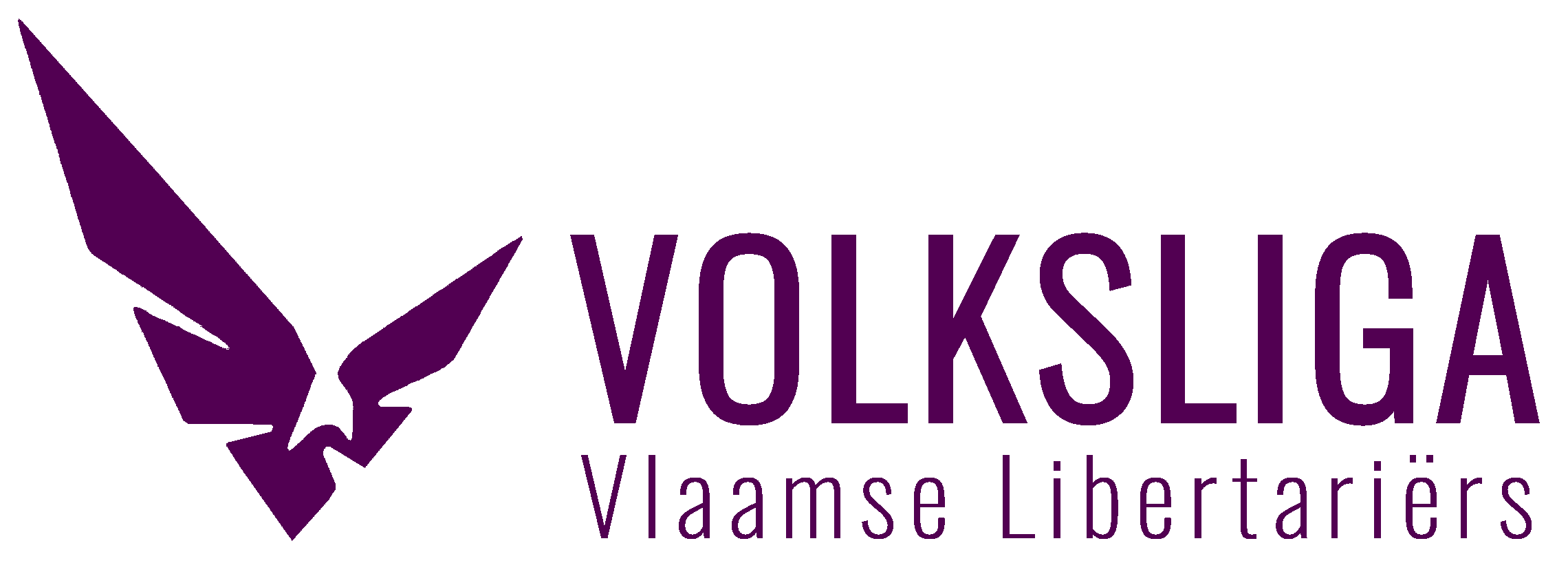Welcome to VolksLiga, the Flemish Libertarian Party
Your voice. Your power.
VolksLiga’s official party slogan. In Dutch: Uw stem. Uw macht.
VolksLiga (“The People’s League“) is a libertarian political initiative and since 2019 a nationwide movement in Flanders. The main principles of our ideology can be boiled down to maximum personal freedom in the context of minimum government and maximal governance in terms of efficiency. We advocate pacifism, property rights, and a free capitalism-based economy without too much government interference.
As Belgium is a federal country, it is divided into several states, with a specific language identity in each of these. If a political initiative aims to represent the entire country in the Federal Chamber, it needs to hand in 11 ballot lists, one for each province, whereof five for Flemish provinces (Dutch-speaking), five for Walloon ones (French-speaking), and one for the capital region of Brussels (mixed). In respect of the identity and debating culture in each of the states, we only run in the Flemish state. As for Brussels, we seek a privileged partnership with Parti Libertarien to create a joint ballot list.
Background
In our party, there is room for different opinions about the implementation and shaping of such a libertarian society. We may house members who depart from an extremist point of view and consider themselves as anarchists as well as members who are spiritual, religious or conservative. As long as every member sides our aims and goals, specified in our statutes (Dutch), there is a will and way.
Under the leadership of founder Henning Van Duffel, the political idea grew out to become a local political faction. He had the aim to introduce VolksLiga’s name and principles in his local home town Mechelen through the municipal elections in 2018. The Belgo-Norwegian founder saw it as a pilot project, himself being a central party member of Liberalistene (Capitalist Party). That same year VolksLiga also took off in a neighbouring town Duffel (not to be confused with the owner’s surname). With respectively 0,42% and 1,01% of the votes, no member was elected, although many goals had been achieved in terms of communication and local awareness.
By the end of 2018, we investigated the possibility to participate in the 2019 national elections. In February of 2019, we allied with our French-speaking colleagues Parti Libertarien and officially sought membership of the IALP, the International Association of Libertarian Parties.
Belgium: Mediocrity is a Standard
Like most of the Western European countries, Belgium has become a service society and has not had any natural resources to financially rely on since the Congo’s decolonisation in the early sixties. The country has to compete with its neighbours concerning job creation and general productivity. In statistics in comparison with our neighbours, we always finish as the country with the most expensive consumption and as the country with the highest tax pressure. The choice of living alone and not starting a family equals bankruptcy, and even with children, there is no way to evade giving away an arm and a leg to taxes.
Additionally, the heavy bureaucratic weight upon the kingdom’s flawful federalist structure, favouring and securing the French-speaking and German-speaking minorities, complicates decision-making on a national level. The regions of Flanders, Wallonia and Brussels seem to follow different agendas and ambitions, forcing the country sooner or later to bow over a new internal structure. A possible long-lasting absence of a mandated government and a social security system that makes people retire already in their fifties, regardless of their physical and mental capabilities, scare off domestic and international entrepreneurship.
People in Belgium, whichever language they speak, share the feeling that their economy is stagnating, even when official economy statistics and the number of new jobs point in a more optimistic direction. It must be also said that there are reasons for people feeling insecure about their future. That is when net incomes are average and the cost of living is expensive. A great libertarian solution to this problem would be to make a smaller government that only focuses on the most important tasks so that taxes can be reduced and the individual net income and purchase power will increase. We foresee that this will cause a temporary rise in prices, but additional measures can be taken to make consumption less costly in the long term, such as lowering the VAT and duties to reasonable levels.
Our branding: the philosophy behind it
In Belgian politics, deep-blue or marine colours are already taken by socio-liberal movements and already have troubled connotations. Turquoise has also been associated with coalitions between the Green party and socio-liberals. Yellow in the Belgian-Flemish context is a common symbol with existing movements that seek independence for Flanders. All of those organisations have a more or less collectivist agenda and since we aim to push the economy towards a totally other direction, we want to distinguish ourselves clearly. Furthermore, in European politics, there is often a parliamentary red and blue block, which means that you’re belonging to a socialist coalition or a socio-liberal / conservative coalition respectively.
Given the similar branding challenge, we want to follow the same colour philosophy of our Norwegian colleagues’ Liberalistene: violet/purple. This places us outside or in the middle of the red-blue-axis because we don’t fit in that “block” logic. VolksLiga’s official HEX colour code is #540054. This is accompanied by the yellow contrast colour #ffca0f. We have two main character fonts. The one used in our logo is Haettenschweiler. The general text font is Oswald.
All media and texts produced by VolksLiga or published on the website or other official channels may be copied and re-distributed with a reference.
